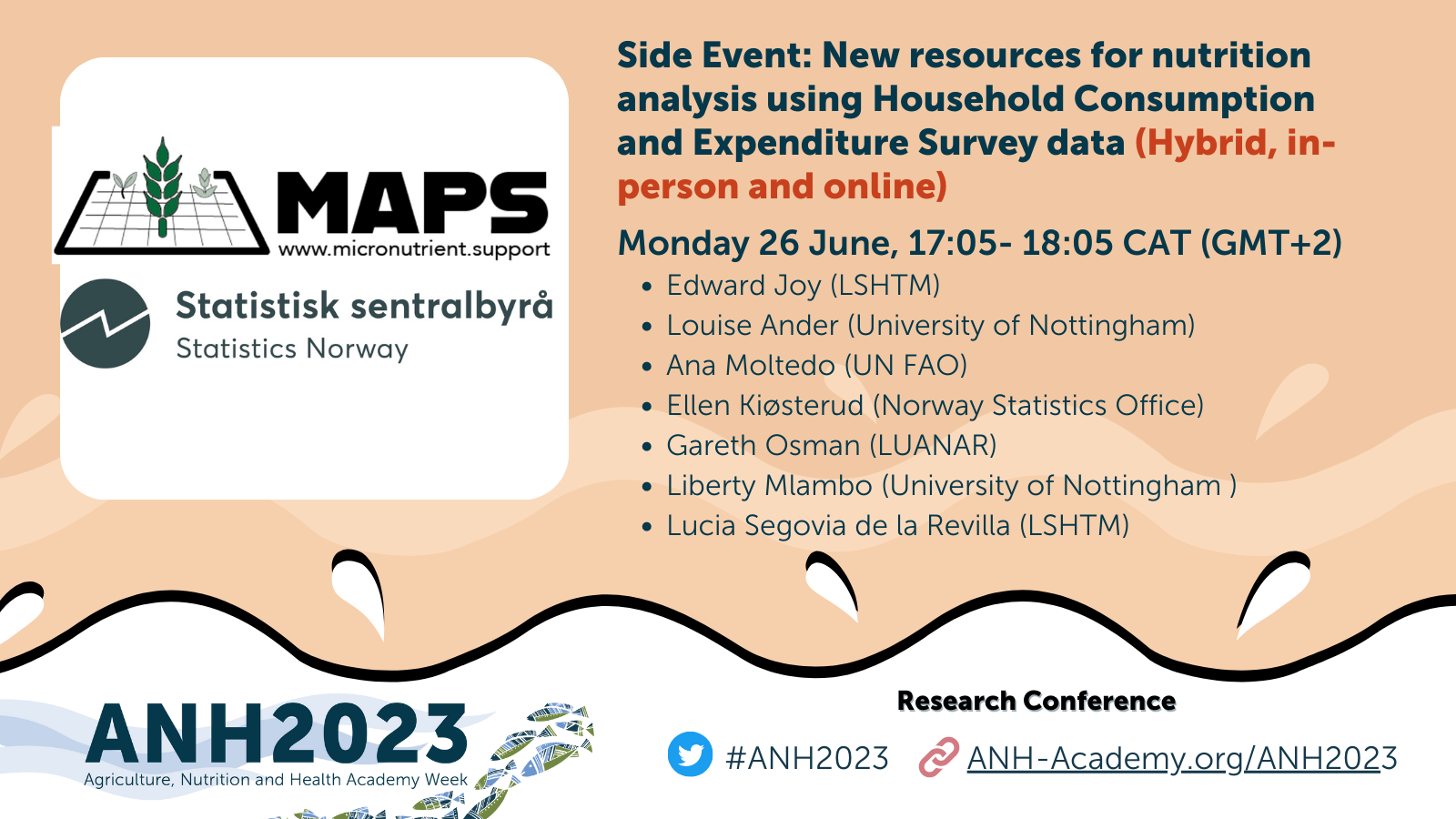Open Full Event


Times for this event are in CAT (GMT+2)
Description
Household Consumption and Expenditure Surveys (HCES) provide valuable information on what people eat. New resources can facilitate the processing and analysis of HCES food consumption data, reducing barriers to use for research and practitioner communities. We will present updates from three initiatives:
- HCES data processing guidelines (Norway Statistics Office/UN Expert Committee on Food Security, Agricultural and Rural statistics), provide a consistent methodology to process raw HCES data and create a dataset containing the value, quantity, and dietary energy of survey food items.
- The FAO Food and Diet Domain includes food and nutrient apparent consumption statistics, based on retrospective harmonised HCES data processing, at national and subnational levels, as well as by food groups.
- The open-source Micronutritent Action Policy Support (MAPS) Tool provides a framework for integrating HCES food consumption data with composition data, to estimate dietary nutrient supplies and explore interventions.
Organizations involved
- London School of Hygiene and Tropical Medicine (LSHTM)
- University of Nottingham
- Norway Statistics Office
- UN Food and Agriculture Organization
- Lilongwe University of Agriculture and Natural Resources (LUANAR)
Speakers
- Edward Joy (London School of Hygiene and Tropical Medicine (LSHTM)
- Louise Ander (University of Nottingham)
- Ana Moltedo (UN FAO)
- Ellen Kiøsterud (Norway Statistics Office)
- Liberty Mlambo (University of Nottingham)
- Lucia Segovia de la Revilla (LSHTM)
- Gareth Osman (Lilongwe University of Agriculture and Natural Resources)
Check out our ANH2023 communications toolkit media toolkit for useful Twitter handles, graphics and other materials.
Speakers:
London School of Hygiene and Tropical Medicine
FAO
Statistics Norway
University of Nottingham
Lilongwe University of Agriculture and Natural Resources (LUANAR)
University of Nottingham








